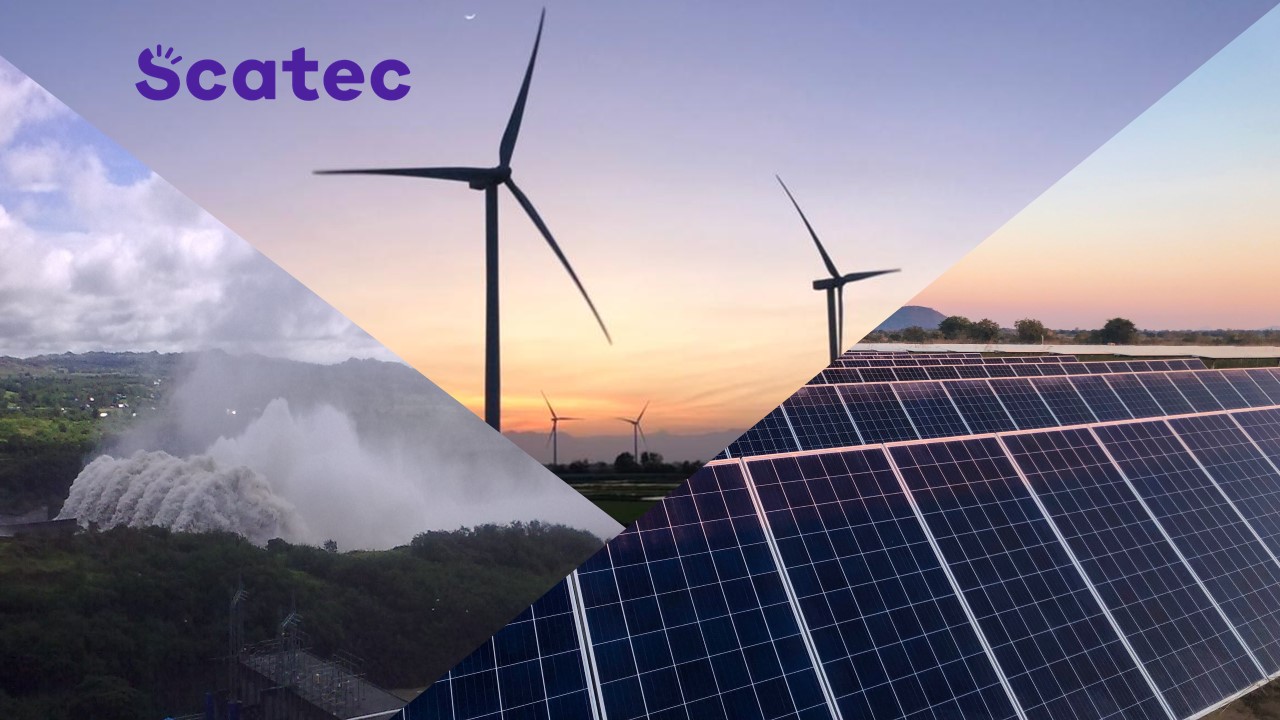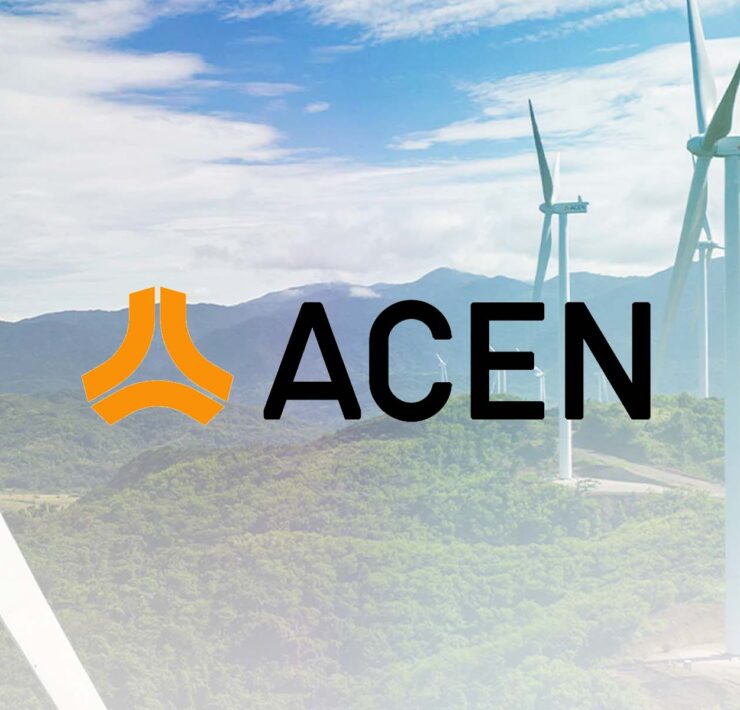Norwegian firm raises stake in PH renewable energy

Renewable energy investments dominated the landscape in the first half of the year with projects in the sector making up the majority of the P950 billion in projects approved by the Board of Investments.
This can be attributed mainly to the clear policy direction that the Marcos administration has set: clean energy will account for 35 percent of the energy mix by 2030 and up to 50 percent by 2040, a far different picture from today where as much as 62 percent of the country’s power requirement is supplied by coal-fired power plants.
Such an ambition has made the Philippines an attractive destination for companies such as Norway-based Scatec, which is eager to widen its footprint in the country’s burgeoning renewable energy sector.
“It is our vision and our passion as a company to contribute to accelerating the green transition, bringing more renewable energy into the markets globally. And we are especially focusing on markets where we see that green energy and renewable energy can really make a difference, where we see that it has an impact and where we see that it makes fundamentally sense from a competitive point of view,” Scatec CEO Terje Pilskog tells the Inquirer in an interview.
The 53-year-old Pilskog was in the Philippines recently to get updates on Scatec’s projects being pursued in partnership with its partner Aboitiz Power as well as explore other areas where it can expand on its own, mainly within solar, onshore wind and batteries.
An industry veteran with deep understanding and knowledge of the renewable energy industry, Pilskog believes that given Scatec’s experience and expertise, it is in a unique position to help the Philippines on its journey toward using more green energy.
“Energy transition is not going to happen overnight but I think you have to push hard in that direction. Clearly we want to be part of that, for the Philippines. And we have something to contribute based on our experience. We do have more than 10 years of experience in this space and experience across all these technologies,” Pilskog says.
Focus on Philippines
Oslo-based Scatec is a leading renewable energy solutions provider, accelerating access to reliable and affordable clean energy in high-growth markets/emerging markets, with the Philippines among its focus markets.
It develops, builds, owns and operates renewable energy plants, with 4.6 gigawatts in operation and under construction across four continents today.
Scatec entered the Philippine market after forging a joint venture with Aboitiz Power Corp., the holding company of the Aboitiz Group’s investments in power generation, distribution and retail electricity services. Today, SN Aboitiz Power, present since 2005, is the largest private hydropower company in the country with 642 megawatts in operation.
Pilskog says Scatec is eager to do more together with Aboitiz and also on its own to showcase the breadth of its experience and capabilities. It already has a team in place in the Philippines to scout for possible expansion projects.
“Our ambition is to continue to build out renewables both in our core markets and in the Philippines—through our partnership with Aboitiz Power. I think that we do look for more opportunities to continue to build out more hydropower. And then both within our partnership and by ourselves, we will continue to look for opportunities to build out solar, wind and also hybrid installations,” he says.
For him, there is no question that companies should invest more in renewable energy to help the Philippines achieve its climate goals and he believes that with enough exposure in the Philippines, it is already in a position to be more aggressive in its expansion.
“Scatec as a company has been in the Philippines for quite some time. Now, with an established position we have with our partnership with Aboitiz through our joint venture SNAP, we understand the market significantly better,” he says, “Renewables are becoming more and more competitive on a commercial basis, so then it becomes more attractive for us to take a more aggressive and forceful stance in terms of the market.”
As Pilskog emphasizes, the time for debating over whether climate change is real is long over.
Countries that are highly vulnerable to its effects know this only too well, as a warming planet has brought with it stronger and more frequent typhoons as well as more severe and prolonged droughts.
This thus makes climate change mitigation efforts an imperative, not a mere option.
“My perspective is that we are beyond the stage where we can discuss whether or not climate change is happening. We are beyond that level. There is scientific evidence clearly showing that,” he says.
Scatec was founded in 2007 on the belief that it has an essential role to play in providing the world with clean and affordable energy. Today, it has projects in some 15 countries including Egypt, South Africa and Brazil and the Philippines.
“Our vision is to improve our future—and that is about combating climate change—providing renewable energy and doing that in places where it makes the most sense. We have the strength and have a role to play. It is also obviously about ensuring that whatever we do, we do it in a responsible way. We have certain values in terms of how we do business. We want to make sure that we are managing the environment in a good way when we build renewables,” he says.
Striking a balance
It is also fortunate that technology has rapidly developed over the years to the point that the production cost has gone down dramatically.
He notes, for example, that the price of solar panels today is equivalent to a mere 3 percent of what they cost back in 2007, showing how the renewable industry has rapidly developed in just 15 years.
“Clearly, this topic about renewable energy being too costly , I think it is an old truth that has become past,” says Pilskog.
Then there is the question of intermittancy, which is slowly being answered so that renewables can hold their own as a dispatchable power, or power that can be immediately activated to contribute to the grid.
Indeed, striking a balance between delivering power at a competitive cost and at the same time pursuing climate change ambitions is a nuanced as well as a difficult and complex task that will still need to be accomplished.
This is where Scatec’s expertise can come in given its experience in different countries that are confronted with the same issues, but for which it has also come forward with solutions.
“We do have significant experience in terms of developing and building renewable energy projects. We have been active across technologies. We basically have very strong capabilities, from the technical to the commercial, financial and development side. We think that some of those experiences we can definitely also bring to the Philippines.”
“That is a real vision, a vision we established more than 10 years ago – I believe that we have a vision as a company, which stands against the challenge of time, so to speak. It is even more relevant now,” Pilskog adds.
Indeed, renewable energy has become more competitive and attractive than ever and Scatec is well-positioned to capitalize on it while helping the Philippines along on its energy transition journey.





















